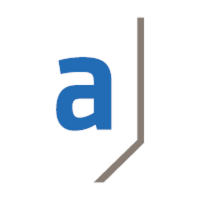10. March 2023 By Karsten Pralle
Selecting a CRM system – a blueprint for finding the right CRM tool for your company
Transforming your company’s business model, digitalisation and tapping the potential to cut costs in core processes each require major investments in IT infrastructure and software products. One key focus is on the companies’ marketing and sales activities, since these are essential for successful business management. Above all, these activities are optimally supported by modern customer relationship management (CRM) tools, which now offer much more than just contact management functions.
In this blog post I will explain how to find a CRM solution that is just right to meet your company’s individual needs. I will also explore architecture-related issues along with the specific challenges you will face when it comes to selecting a CRM solution for use in the insurance sector.
Process model
Every business is different, and every company knows its business best. It is therefore important to have a clear corporate strategy at the start of any CRM project. Based on the current and future product portfolio, this strategy establishes the sales orientation both online and offline and thus provides a clear framework for the support processes that will be needed. Now as ever, there are also key employees at every company whose expertise is indispensable when it comes time to select a CRM system.
In addition to the general cost targets and project parameters, vast experience is now available on what range of functions must be state-of-the-art in modern CRM systems, regardless of whether you are talking about an on-premise or SaaS solution. An individual catalogue of criteria is then developed based on all the information gathered so far, which can be used as the benchmark for judging possible CRM solutions. This provides a logical sequence for the evaluation activities:
- Strategic guidelines
- Expert interviews
- Catalogue of criteria
- Provider screening and benchmarks
- Architecture-related issues
- Tender process/call for bids
Users are key – user feedback reveals criteria for acceptance
Experience from numerous evaluation projects shows that future users still know best what they want. Out of anyone, they know the central pain points of the past. To gain the acceptance of users as well as their support early on during the selection process, it is necessary to bring these stakeholders in particular on board in the discussions at the earliest time possible and compile their requirements. Structured expert interviews have proven to be extremely useful here. These interviews should be conducted by an independent third party using a prepared questionnaire, with the aim of obtaining as much relevant information as possible on neutral ground. If necessary, the interviews can be supported by subject matter experts (SME) in a second, in-depth interview. These are unbiased specialists who have vast knowledge of CRM. Beyond that, the support and involvement of SMEs is a useful quality criterion that allows you to fully objectify the future decision on the CRM system you choose and ensure all relevant criteria concerning the individual application have been considered.
The catalogue of criteria – the initial benchmark
Based on the insights gained during the interviews described above, a full list of technical, non-technical and other requirements regarding the future CRM are compiled. The technical criteria could include, for example, requirements with regard to practical support for specific technical or business processes. The non-technical requirements include, for example, highly specific guidelines on the usability or performance of the application. When it comes to the other requirements, for example, supplier-specific or product-related specifications or even references and the experience of the provider can flow into the evaluation. How in-depth or granularly the requirements are explored and described in the criteria catalogue can be scaled as required based on the resources available, the budget and/or the quality of the decisions to be achieved. In the end, the catalogue of criteria serves as a benchmark for potential applications. Defining the requirements as use cases or closed questions has proven to be a key factor here. By doing so, you can prescribe answer formats that allow for a standardised evaluation which, in turn, facilitates an initial comparability of the results.
Provider screening and benchmarks
The catalogue can be made available to product providers as part of a request for information (RfI). The scope as well as the longlist of providers can be drawn up based on your own research or by purchasing relevant market studies and taking into account internal company specifications. When it comes to determining how much time to give providers to respond to an RfI, experience has shown that they must be given sufficient time, despite the focus on service. This must be taken into account early on in the planning process because these specialised service providers are currently operating in a highly dynamic market environment in which they are experiencing strong demand for their services and are increasingly active internationally (SME/pre-sales). An entire team of experts is needed to find and coordinate the answers in response to the catalogue of criteria, especially if a high level of customisation and granularity is being sought. As indicated above, having prescribed answer formats makes it possible to perform a statistical evaluation and then establish a benchmark, which is used to draw up a shortlist.
Architecture as a factor to consider
On-premise or SaaS, the capability for integration and system breaks are some of the many technical issues that arise when it comes time to select a CRM. Therefore, you should always consider the architecture when making your decision. This can be done early on when you are preparing the catalogue of criteria. At the latest, however, you should do this during discussions with the shortlisted candidates and before the final decision is made. If the company does not have sufficient architecture expertise, independent consultancies can provide the relevant expertise to identify critical project challenges early on.
MVP instead of big bang
When planning projects, companies are faced with the challenge of choosing how to implement them. This decision depends on a variety of influencing factors. Practice has shown that the best approach is always to proceed in iterations by developing and testing an initial MVP using a sample process or product. In later iterations, the portfolio of business processes or managed products is then completed, each time taking into account the experience gained in previous iterations. This ensures that complexity remains manageable during the development and rollout phase and that a high-performance application gradually emerges, which was what the company had wanted from the get-go. A phased, interactive launch has demonstrated advantages, especially when it comes to testing and quality assurance (QA) as well as during go-live. Conversely, if a company focuses heavily on testing and QA activities during the project, this puts it in a position to carry out a big bang implementation and provide the resources necessary for this.
Lessons learned
Experience from a host of CRM projects has shown time and again that the factors for success are remarkably similar. Companies that employ standard software and best practices quickly see major gains in process quality and business performance. Companies are also discovering that they should have put their faith in cloud applications from the beginning in order to avoid high migration costs over the long term. It is also very important for the IT unit and other departments to acquire expertise early on and in a structured manner in order for them to be able to support the modern applications. Workflow and configurability are key considerations here.
Modern CRM systems, for example, come with a workflow component that allows IT or trained business users to configure new, customised workflows or to adapt existing business processes in such a way that no development work is required. This is a key advantage of modern CRM applications, as it allows a company to significantly reduce the time-to-market of new products, for example.
Due to the central role played by a CRM system and, in many cases, its large user base, project coordination requires reliable, forward-looking planning, especially when it comes to the development and review cycles. Having well-defined timeboxing, with forward planning and preparation of the relevant user groups and IT, is essential. It is also absolutely critical that the challenges concerning data sovereignty are resolved in advance. Finally, it always make sense to devote significant resources to business analysis, that is, to the elicitation and definition of requirements, since this will significantly reduce the number of delays during the project implementation phase. In addition, it is essential that you provide a technical project manager and/or chief product owner from a central user group, since this person, with his or her internal network and accompanying decision-making authority, can help ensure that the project is successful and completed according to plan.
You can find more exciting topics from the adesso world in our blog posts published so far.
Also interesting:

